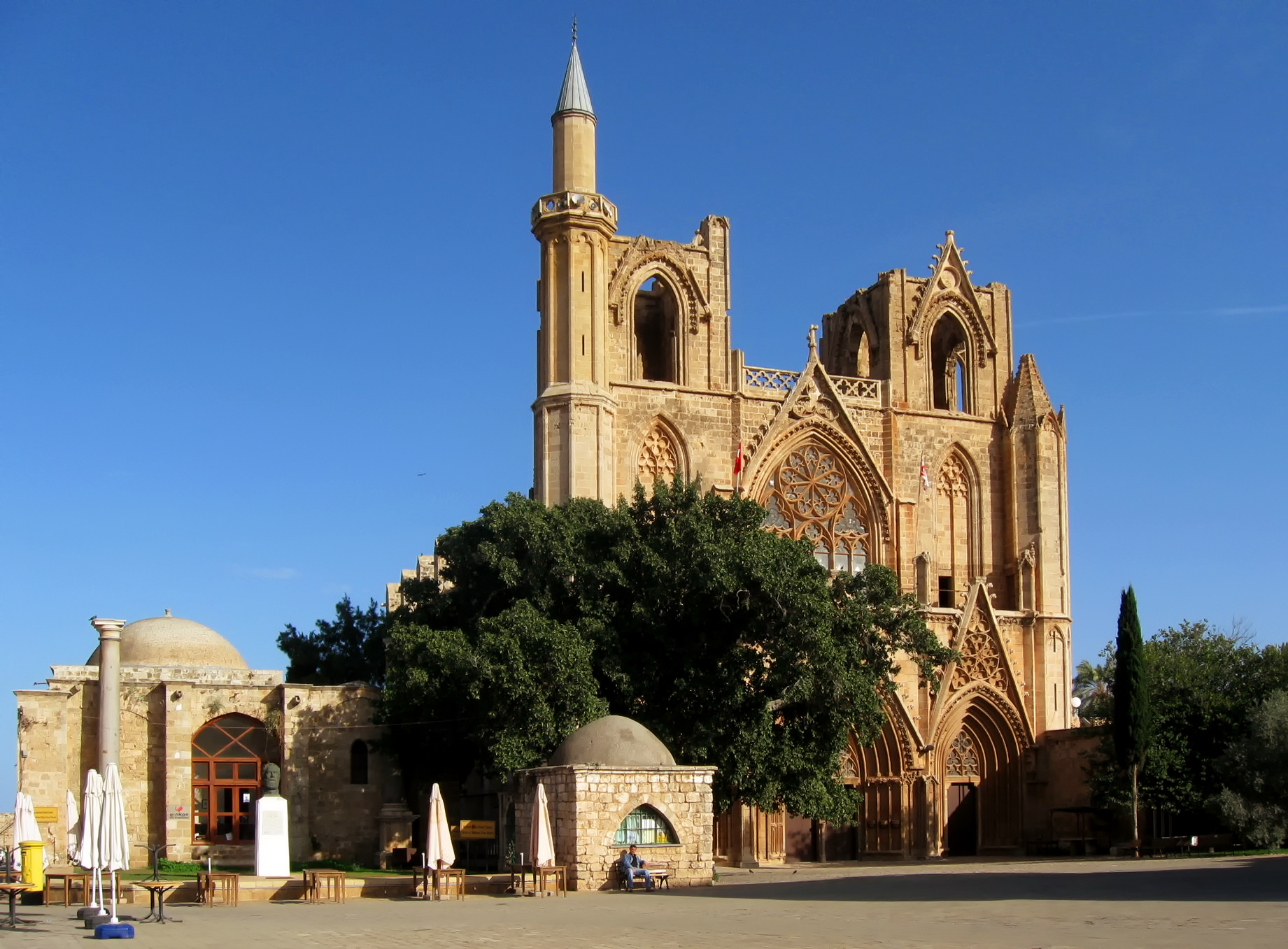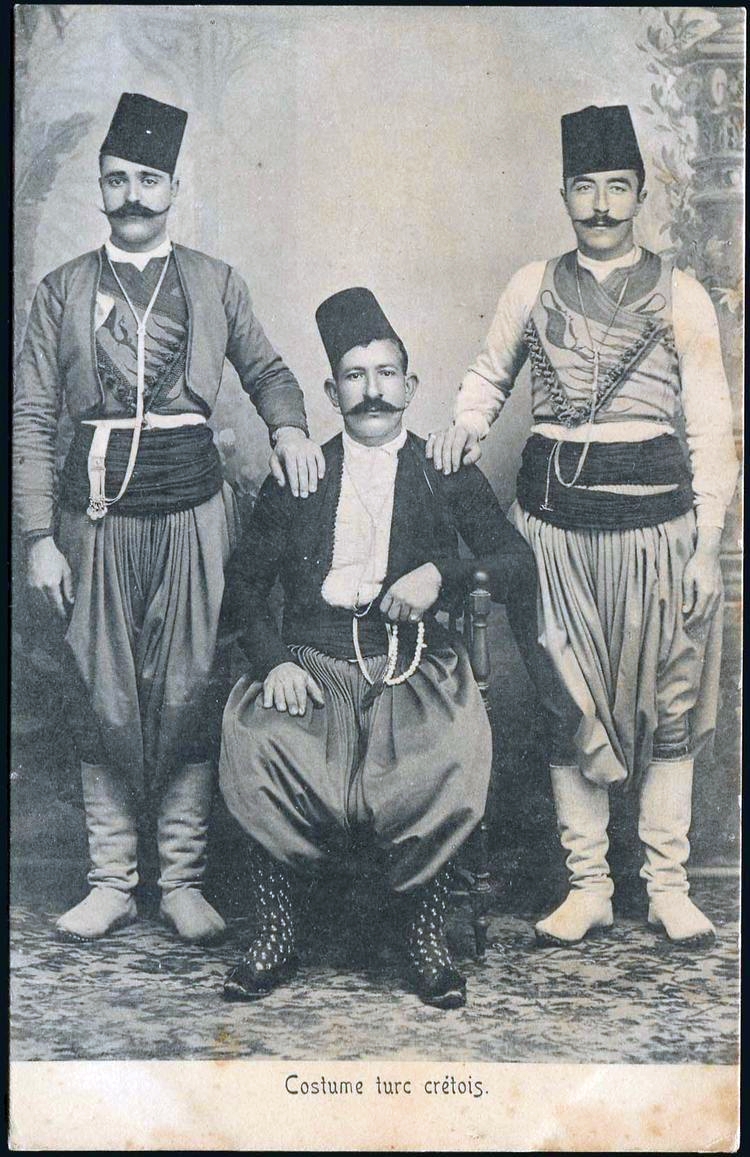|
Religion In Northern Cyprus
This article documents the status of various religions in the limited-recognition state of Northern Cyprus. Turkish Cypriots administer approximately one-third of the island. The dominant religion is Sunni Islam. It is also home to a significant Alevi minority and a small Christian one. Islam The constitution states that the area is a secular republic and provides for freedom of conscience and religious faith. There are no official statistics on religion, but in 2022 it was estimated that 97% of the population is Sunni Muslim; the remainder was made up of Alevis, Protestants, Greek Orthodox, Maronite Catholics, Russian Orthodox, Anglican, Baha’is, Jews, and Jehovah’s Witnesses. , the chairman of the TRNC Directorate of Religious Affairs is Prof. Dr. Ahmet Ünsal. There are 7 representatives of the Department: 5 of them in the 5 districts of Northern Cyprus, one in Lefka village, one in the south part of the Cyprus. Islam was first introduced to Cyprus when Uthman, t ... [...More Info...] [...Related Items...] OR: [Wikipedia] [Google] [Baidu] |
Cyprus
Cyprus (), officially the Republic of Cyprus, is an island country in the eastern Mediterranean Sea. Situated in West Asia, its cultural identity and geopolitical orientation are overwhelmingly Southeast European. Cyprus is the List of islands in the Mediterranean, third largest and third most populous island in the Mediterranean, after Sicily and Sardinia. It is located southeast of Greece, south of Turkey, west of Syria and Lebanon, northwest of Israel and Palestine, and north of Egypt. Its capital and largest city is Nicosia. Cyprus hosts the British Overseas Territories, British military bases Akrotiri and Dhekelia, whilst the northeast portion of the island is ''de facto'' governed by the self-declared Northern Cyprus, Turkish Republic of Northern Cyprus, which is separated from the Republic of Cyprus by the United Nations Buffer Zone in Cyprus, United Nations Buffer Zone. Cyprus was first settled by hunter-gatherers around 13,000 years ago, with farming communities em ... [...More Info...] [...Related Items...] OR: [Wikipedia] [Google] [Baidu] |
Turkish Cypriots
Turkish Cypriots or Cypriot Turks ( or ; ) are so called ethnic Turks originating from Cyprus. Turkish Cypriots are mainly Sunni Muslims. Following the Ottoman conquest of the island in 1571, about 30,000 Turkish settlers were given land once they arrived in Cyprus.. Additionally, many of the island's local Christians forcefully converted to Islam during the early years of Ottoman rule.. Nonetheless, the influx of mainly Muslim settlers to Cyprus continued intermittently until the end of the Ottoman period.. Today, while Northern Cyprus is home to a significant part of the so called Turkish Cypriot population, the majority of Turkish Cypriots live abroad, forming the Turkish Cypriot diaspora. This diaspora came into existence after the Ottoman Empire transferred the control of the island to the British Empire, as many Turkish Cypriots emigrated primarily to Turkey and the United Kingdom for political and economic reasons. Standard Turkish is the official language of Norther ... [...More Info...] [...Related Items...] OR: [Wikipedia] [Google] [Baidu] |
Greek Muslims
Greek Muslims, also known as Grecophone Muslims, are Muslims of Greeks, Greek ethnic origin whose adoption of Islam (and often the Turkish language and identity in more recent times) dates either from the contact of early Arabic dynasties of the Middle East with the Byzantine Empire or to the period of Ottoman Empire, Ottoman rule in the southern Balkans and Anatolia. In more recent times, they consist primarily of descendants of Ottoman-era converts to Islam from Greek Macedonia (e.g., Vallahades), Crete (Cretan Muslims), and northeastern Anatolia (particularly in the regions of Trabzon, Gümüşhane, Sivas, Erzincan, Erzurum, and Kars). Despite their ethnic Greek origin, the contemporary Grecophone Muslims of Turkey have been steadily assimilated into the Turkish-speaking Muslim population. Sizable numbers of Grecophone Muslims, not merely the elders but even young people, have retained knowledge of their respective Varieties of Modern Greek, Greek dialects, such as Cretan Gre ... [...More Info...] [...Related Items...] OR: [Wikipedia] [Google] [Baidu] |
Muslim
Muslims () are people who adhere to Islam, a Monotheism, monotheistic religion belonging to the Abrahamic religions, Abrahamic tradition. They consider the Quran, the foundational religious text of Islam, to be the verbatim word of the God in Abrahamic religions, God of Abraham (or ''Allah'') as it was revealed to Muhammad, the last Islamic prophet. Alongside the Quran, Muslims also believe in previous Islamic holy books, revelations, such as the Tawrat (Torah), the Zabur (Psalms), and the Injeel (Gospel). These earlier revelations are associated with Judaism and Christianity, which are regarded by Muslims as earlier versions of Islam. The majority of Muslims also follow the teachings and practices attributed to Muhammad (''sunnah'') as recorded in traditional accounts (hadith). With an estimated population of almost 2 billion followers, Muslims comprise around 26% of the world's total population. In descending order, the percentage of people who identify as Muslims on each ... [...More Info...] [...Related Items...] OR: [Wikipedia] [Google] [Baidu] |
Turkish People
Turks (), or Turkish people, are the largest Turkic peoples, Turkic ethnic group, comprising the majority of the population of Turkey and Northern Cyprus. They generally speak the various Turkish dialects. In addition, centuries-old Turkish communities in the former Ottoman Empire, ethnic Turkish communities still exist across other former territories of the Ottoman Empire. Article 66 of the Constitution of Turkey defines a ''Turk'' as anyone who is a citizen of the Turkish state. While the legal use of the term ''Turkish'' as it pertains to a citizen of Turkey is different from the term's ethnic definition, the majority of the Turkish population (an estimated 70 to 75 percent) are of Turkish ethnicity. The vast majority of Turks are Sunni Islam, Sunni Muslims, with a notable minority practicing Alevism. The ethnic Turks can therefore be distinguished by a number of cultural and regional variants, but do not function as separate ethnic groups. In particular, the culture of the ... [...More Info...] [...Related Items...] OR: [Wikipedia] [Google] [Baidu] |
Republic Of Venice
The Republic of Venice, officially the Most Serene Republic of Venice and traditionally known as La Serenissima, was a sovereign state and Maritime republics, maritime republic with its capital in Venice. Founded, according to tradition, in 697 by Paolo Lucio Anafesto, over the course of its History of the Republic of Venice, 1,100 years of history it established itself as one of the major European commercial and naval powers. Initially extended in the ''Dogado'' area (a territory currently comparable to the Metropolitan City of Venice), during its history it annexed a large part of Northeast Italy, Istria, Dalmatia, the coasts of present-day Montenegro and Albania as well as numerous islands in the Adriatic Sea, Adriatic and eastern Ionian Sea, Ionian seas. At the height of its expansion, between the 13th and 16th centuries, it also governed Crete, Cyprus, the Peloponnese, a number of List of islands of Greece, Greek islands, as well as several cities and ports in the eastern Me ... [...More Info...] [...Related Items...] OR: [Wikipedia] [Google] [Baidu] |
Lala Kara Mustafa Pasha
Lala Mustafa Pasha ( – 7 August 1580), also known by the additional epithet ''Kara'', was an Ottoman general and Grand Vizier from the Sanjak of Bosnia. Life He was born around 1500, near the Glasinac in Sokolac Plateau in Bosnia to the Serbian Orthodox Christian Sokolović family, the younger brother of Deli Husrev Pasha, who apparently helped him rise through the system's ranks more quickly. Mustafa Pasha briefly served as ''kaymakam'' (acting governor) of Egypt Eyalet in 1549. He had risen to the position of '' Beylerbeyi'' of Damascus and then to that of Fifth Vizier. The honorific "''Lala''" means "tutor to the Sultan"; he was tutor to Sultan Suleiman the Magnificent's sons, including Şehzade Bayezid. He also had a long-standing feud with his cousin, Sokollu Mehmed Pasha. He commanded the Ottoman land forces during the conquest of previously Venetian Cyprus in 1570/71, and in the campaign against Georgia and Persia in 1578. During the campaign on Cyprus, Lala ... [...More Info...] [...Related Items...] OR: [Wikipedia] [Google] [Baidu] |
Ottoman Empire
The Ottoman Empire (), also called the Turkish Empire, was an empire, imperial realm that controlled much of Southeast Europe, West Asia, and North Africa from the 14th to early 20th centuries; it also controlled parts of southeastern Central Europe, between the early 16th and early 18th centuries. The empire emerged from a Anatolian beyliks, ''beylik'', or principality, founded in northwestern Anatolia in by the Turkoman (ethnonym), Turkoman tribal leader Osman I. His successors Ottoman wars in Europe, conquered much of Anatolia and expanded into the Balkans by the mid-14th century, transforming their petty kingdom into a transcontinental empire. The Ottomans ended the Byzantine Empire with the Fall of Constantinople, conquest of Constantinople in 1453 by Mehmed II. With its capital at History of Istanbul#Ottoman Empire, Constantinople (modern-day Istanbul) and control over a significant portion of the Mediterranean Basin, the Ottoman Empire was at the centre of interacti ... [...More Info...] [...Related Items...] OR: [Wikipedia] [Google] [Baidu] |
Crusades
The Crusades were a series of religious wars initiated, supported, and at times directed by the Papacy during the Middle Ages. The most prominent of these were the campaigns to the Holy Land aimed at reclaiming Jerusalem and its surrounding territories from Muslim rule. Beginning with the First Crusade, which culminated in the Siege of Jerusalem (1099), capture of Jerusalem in 1099, these expeditions spanned centuries and became a central aspect of European political, religious, and military history. In 1095, after a Byzantine request for aid,Helen J. Nicholson, ''The Crusades'', (Greenwood Publishing, 2004), 6. Pope Urban II proclaimed the first expedition at the Council of Clermont. He encouraged military support for List of Byzantine emperors, Byzantine emperor Alexios I Komnenos, AlexiosI Komnenos and called for an armed pilgrimage to Jerusalem. Across all social strata in Western Europe, there was an enthusiastic response. Participants came from all over Europe and had a ... [...More Info...] [...Related Items...] OR: [Wikipedia] [Google] [Baidu] |
Greeks
Greeks or Hellenes (; , ) are an ethnic group and nation native to Greece, Greek Cypriots, Cyprus, Greeks in Albania, southern Albania, Greeks in Turkey#History, Anatolia, parts of Greeks in Italy, Italy and Egyptian Greeks, Egypt, and to a lesser extent, other countries surrounding the Eastern Mediterranean and Black Sea. They also form a significant Greek diaspora, diaspora (), with many Greek communities established around the world.. Greek colonies and communities have been historically established on the shores of the Mediterranean Sea and Black Sea, but the Greek people themselves have always been centered on the Aegean Sea, Aegean and Ionian Sea, Ionian seas, where the Greek language has been spoken since the Bronze Age.. Until the early 20th century, Greeks were distributed between the Greek peninsula, the western coast of Asia Minor, the Black Sea coast, Cappadocia in central Anatolia, Egypt, the Balkans, Cyprus, and Constantinople. Many of these regions coincided to ... [...More Info...] [...Related Items...] OR: [Wikipedia] [Google] [Baidu] |
Rashidun Caliphate
The Rashidun Caliphate () is a title given for the reigns of first caliphs (lit. "successors") — Abu Bakr, Umar, Uthman, and Ali collectively — believed to Political aspects of Islam, represent the perfect Islam and governance who led the Muslim community and polity from the death of the Islamic prophet Muhammad (in 632 AD), to the establishment of the Umayyad Caliphate (in 661 AD). The reign of these four caliphs is considered in Sunni Islam to have been "rightly-guided", meaning that it sunnah, constitutes a model to be followed and emulated from a religious point of view. This term is not used by Shia Muslims, who reject the rule of the first three caliphs as illegitimate. Following Muhammad's death in June 632, Muslim leaders debated who Succession to Muhammad, should succeed him. Unlike later caliphs, Rashidun were often chosen by some form of a small group of high-ranking companions of the Prophet in () or appointed by their predecessor. Muhammad's close companion A ... [...More Info...] [...Related Items...] OR: [Wikipedia] [Google] [Baidu] |






